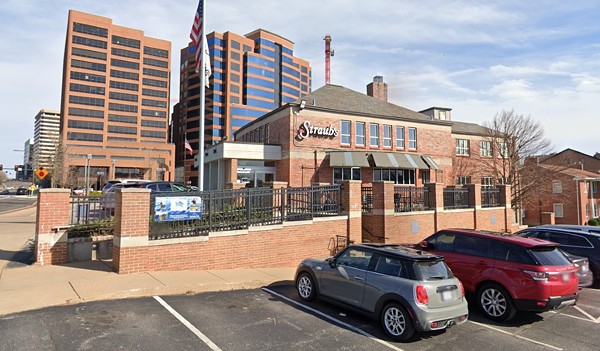New Mexico
Two N.M. prison guards named three times in civil rights complaints – Source New Mexico

Two New Mexico correctional facility officers are still working in state prisons after being accused multiple times of sexually abusing and harassing incarcerated people.
This past year, the prison guards Lt. Christian Trujillo and Sgt. Danny Pelayo were both named three times in civil complaints and civil rights lawsuits.
Trujillo and Pelayo work at the Northeast New Mexico Correctional Facility in Clayton.
A review of court and internal employment records by The Daily Lobo and Source NM shows the guards have been involved in a lengthy pattern of abuse against incarcerated people. Their files show that the incidents did not prevent them from moving up the ranks and that settlement negotiations with victims haven’t gone anywhere.
Prisons in both New Mexico and across the country have a long and ongoing history of abusing incarcerated people, especially people of color.
Reached for comment on the civil and criminal cases against Trujillo and Pelayo, New Mexico Corrections Department Public Information Officer Brittany Roembach did not condemn their actions arguing that “as with the justice system in our country, accusations are not findings of guilt.”
Steven Allen is one of the attorneys with the New Mexico Prison and Jail Project that is representing the incarcerated people who were allegedly abused. Allen said the pattern of abuses shows there is no internal accountability within the New Mexico prison system.
“Some of these Corrections Department staff members are able to engage in what seems to be criminal behavior, and they’re able to get away with it, because very bad behavior is consistently covered up in these systems,” Allen said.
The incidents
Carl Berry, a Black man who was incarcerated in Clayton, accused both guards of beating, sexually assaulting and taunting him with racial slurs in reference to the murder of George Floyd on Feb. 15, 2021.
When Berry filed an informal complaint about the abuse on April 19, 2021, he was told it had already been referred to the Office of Professional Standards.
This office handles internal complaints and investigations against New Mexico Corrections Department employees.
Allen said their investigations bring some information to light, but are not often vigorous and are “often part of a cover up.”
“These systems are so hard to expose, they’re almost almost designed to hide information,” Allen said. “It’s like any other institution — police departments are like this — where there’s always an institutional penchant for covering up any misconduct.”
When Berry said he was assaulted in February, he was called a “PREA pussy” by one of the guards. PREA refers to the Prison Rape Elimination Act, the federal law that prohibits prison guards from sexually assaulting people who are incarcerated.
Lawsuit: NM prison guard tells Black man, ‘Let me guess, you can’t breathe?’
The New Mexico Corrections Department formally received his grievance on May 3. Training records and another incident shows that Pelayo knew that he was not supposed to sexually harass incarcerated people.
On June 4, 2020, Pelayo indicated there had been a substantiated allegation of sexual harassment against him, but he had never engaged in sexual abuse or had any criminal conviction or civil adjudication against him.
On Jan. 27, 2022 he filled out a self-declaration form and left blank the section asking about whether a past claim of sexual harassment had been made against him.
On Feb. 15, 2022, he was promoted to be a sergeant.
On Sept. 13, 2022, Pelayo was allegedly involved with the harassment of Jonathan Silva, also at the prison in Clayton, according to court records.
This was the first form in his personnel file to indicate a prior claim of harassment. Shortly thereafter, he joined the emergency response team, a group that responds to violent disturbances from incarcerated people.
Trujillo knew too
In 2019, Trujillo signed paperwork acknowledging that he understands PREA, knows what sexual harassment is, and that he knows it is illegal.
He also swore an oath to the mission: “We commit to the safety and well-being of the people of New Mexico by doing the right thing always.”
Jonathan Silva, another person incarcerated at the same prison in Clayton, accused Trujillo of beating him on Sept. 13, 2022 while Pelayo and other guards held him down.
Video shows Trujillo strike Silva in the head multiple times while he was held down on the floor by other guards, with his hands behind his back.
There are pictures of Silva’s injury and temporary disfigurement, something that was not documented for Berry. Pictures of Silva provided proof of injury and temporary disfigurement, according to the criminal complaint.
Berry was not afforded the same proof.
New Mexico State Police Officer Edward Quintana investigated the incident six hours after it happened. He found that Trujillo was the primary aggressor, and charged him with aggravated battery three months later.
On Jan. 3, 2023, Quintana arrested Trujillo for what he did to Silva.
There wasn’t enough evidence to charge the other guards involved, Quintana wrote in a criminal complaint filed in Clayton Magistrate Court.
Berry also accused Officer Ashley Lawrence of harassing him in 2021. She was suspended for five days in March 2022.
Wardens and other prison and jail administrators often cite understaffing as the cause of problems in their facilities. Allen disagrees and says prisons do not have a problem with staffing.
“The problem is we have too many people in prison and jail,” Allen said. “A lot of prisons, a lot of jails, should be shut down.”
Allen said mass incarceration in the United States has been a “complete failure.”
“We’ve been doing this experiment for decades now in the United States, with incarcerating people to try and increase public safety, and it’s just clearly and obviously not working,” Allen said.
Lack of discipline
A review of Trujillo and Pelayo’s personnel files obtained through an Inspection of Public Records Request shows the two have not been fired from the New Mexico Corrections Department.
The agency would not directly respond to questions about whether they are still employed.
Roembach responded with general comments to questions about the allegations, but did not answer several questions specific to Pelayo and Trujillo.
Not reporting an instance of harassment is against state corrections department policy, Roembach said.
Corrections officials will only take disciplinary action against guards if internal investigators determine the force they used was excessive, Roembach wrote.
Any reports by incarcerated people of abuse are investigated internally.
“While an investigation is active, the accused staff member may be placed on administrative leave or required to work in a different area, if the circumstances of the incident deem it necessary,” Roembach wrote in statement.
Trujillo’s arrest warrant was filed after the Berry incident.
Months after Pelayo was present during Silva’s harassment, the incident that led to Trujillo’s arrest by state police, he left blank a self-declaration form asking if he had any past claims of harassment.
In February 2022, more than 200 days after the assault he witnessed, Pelayo was promoted to sergeant.
Trujillo has held at least six jobs at the prison since 2013, according to his personnel file. He was first promoted in 2017, and has been promoted five times since. He has been promoted frequently, at times waiting only one month between promotions.
“You do often see the OPS investigator coming from that same facility, or asking leading questions to get to the result they want,” Allen said. “The result they want is almost always a lack of accountability for Corrections Department staff.”
The lawsuits
There was no public accountability for the abuse until Berry filed a civil rights lawsuit with the New Mexico Prison and Jail project in April 2023.
Berry and his attorneys on Sept. 14 offered a settlement to the New Mexico Corrections Department. It was not accepted.
As of October, both Berry and the guards were handing over evidence and witness testimony about the incident to a judge.
Steve Watkins was sexually assaulted during the same incident on the same day as Berry. The Prison and Jail Project is also representing him in a separate civil rights suit filed in federal court.
In Watkins’ civil rights case, the incarcerated people and the prison guards are gathering evidence, documents and testimony for trial. On Oct. 20, the guards’ legal team filed a demand for Berry to hand over evidence in the Watkins case.
His case is scheduled for a trial in November 2024.
Silva filed a civil rights complaint over the beating in January.
Studies show 95% of people who go into prison will eventually get out.
Allen said even if one does not care about human and civil rights, people should because how others are treated while on the inside correlates to how they will integrate back into society.
“We should be doing a lot more for these people than simply ensuring that they aren’t getting the crap beaten out of them for no reason,” Allen said.
GET THE MORNING HEADLINES DELIVERED TO YOUR INBOX

New Mexico
New Mexico Lottery Pick 3 Day, Pick 3 Evening results for Jan. 19, 2025
The New Mexico Lottery offers multiple draw games for those aiming to win big. Here’s a look at Jan. 19, 2025, results for each game:
Pick 3
Day: 1-0-7
Evening: 8-8-1
Check Pick 3 payouts and previous drawings here.
Pick 4
Evening: 2-0-3-5
Day: 3-9-9-9
Check Pick 4 payouts and previous drawings here.
Roadrunner Cash
04-05-18-23-26
Check Roadrunner Cash payouts and previous drawings here.
Feeling lucky? Explore the latest lottery news & results
Winning lottery numbers are sponsored by Jackpocket, the official digital lottery courier of the USA TODAY Network.
Where can you buy lottery tickets?
Tickets can be purchased in person at gas stations, convenience stores and grocery stores. Some airport terminals may also sell lottery tickets.
You can also order tickets online through Jackpocket, the official digital lottery courier of the USA TODAY Network, in these U.S. states and territories: Arizona, Arkansas, Colorado, Idaho, Maine, Massachusetts, Minnesota, Montana, Nebraska, New Hampshire, New Jersey, New Mexico, New York, Ohio, Oregon, Puerto Rico, Texas, Washington, D.C., and West Virginia. The Jackpocket app allows you to pick your lottery game and numbers, place your order, see your ticket and collect your winnings all using your phone or home computer.
Jackpocket is the official digital lottery courier of the USA TODAY Network. Gannett may earn revenue for audience referrals to Jackpocket services. GAMBLING PROBLEM? CALL 1-800-GAMBLER, Call 877-8-HOPENY/text HOPENY (467369) (NY). 18+ (19+ in NE, 21+ in AZ). Physically present where Jackpocket operates. Jackpocket is not affiliated with any State Lottery. Eligibility Restrictions apply. Void where prohibited. Terms: jackpocket.com/tos.
This results page was generated automatically using information from TinBu and a template written and reviewed by a Las Cruces Sun-News editor. You can send feedback using this form.
New Mexico
At The People’s March in New Mexico, rally goers brace for second Trump presidency • Source New Mexico

On the eve of President-elect Donald Trump’s second inauguration, speakers at a rally in New Mexico’s largest city called for a new social movement to defy Trump and confront fascism.
Hosted by the New Mexico Women’s March, The People’s March was timed in conjunction with similar protests in Washington D.C. and around the country.
New Mexico Women’s March Chair Samia Assed told the hundreds gathered at Albuquerque’s Civic Plaza the political moment demands practicing democracy and protecting the right to protest.
“A big responsibility lies on our shoulders, and we have to be up for it,” Assed said. “Come Tuesday, President Trump will have his 100 executive orders ready for us. Project 2025 will unfold. Are we going to fight back?”
Assed introduced outgoing U.S. Secretary of the Interior Deb Haaland, the event’s keynote speaker. Haaland noted the record 60 women headed to the state Legislature this week and said there’s much more to do to support parents and working people.
Haaland said Trump is “surrounding himself with super-rich people who look down on us and our communities.”
“Our fight is not over. We will need to do the hard work of getting important things done and pushing back against an administration who couldn’t care less about regular people, about people like us,” Haaland said. “We will need to unapologetically stand up to make change to ensure that your voices are heard. We need more people with real lived experiences elected to office and serving our communities as doctors, scientists, CEOs, so that solutions reflect who we are.”
Other speakers at the rally included state Sens. Antoinette Sedillo Lopez and Harold Pope, Rep. Eleanor Chavez, Pueblo Action Alliance Executive Director Julia Bernal, Faith Roots Reproductive Action Development Director Karinna Solares and El Centro de Igualdad y Derechos Community Organizer Fabiola Landeros.
“We’re going to fight to remind people in power that they answer to us,” Haaland said.
New Mexico
Arctic air sends temperatures plummeting across New Mexico

The first surge of Arctic air moved into New Mexico Saturday night and will continue to drop temperatures statewide going into the week.
ALBUQUERQUE, N.M. — The first surge of Arctic air over northeast New Mexico Saturday will shift south into all of eastern New Mexico overnight. Light snow over parts of eastern New Mexico dissipated, however clouds persisted along the central mountain chain through Sunday morning.
Weather conditions will improve Sunday with lighter winds, but it will stay cold areawide. High temperatures over eastern New Mexico will be up to 25 degrees below normal.
Another cold night is on tap Sunday night. A stronger surge of Arctic air will move into eastern New Mexico Monday with dangerously cold wind chills through Monday night.
An area of light snow is also expected to develop over the Sangre de Cristo Mountains Monday afternoon, and then move south through eastern New Mexico Monday night. Even light snow amounts may lead to slick travel given the temperatures will be falling below zero over much of eastern New Mexico.
Gradual clearing is likely Tuesday but cold weather will continue. Several more cold fronts are expected to slide into eastern New Mexico next week, which will keep temperatures below normal all week.
Meteorologist Brandon Richards has your full forecast in the video above.
-

 Science1 week ago
Science1 week agoMetro will offer free rides in L.A. through Sunday due to fires
-
/cdn.vox-cdn.com/uploads/chorus_asset/file/23935558/acastro_STK103__01.jpg)
/cdn.vox-cdn.com/uploads/chorus_asset/file/23935558/acastro_STK103__01.jpg) Technology1 week ago
Technology1 week agoAmazon Prime will shut down its clothing try-on program
-
/cdn.vox-cdn.com/uploads/chorus_asset/file/25826211/lorealcellbioprint.jpg)
/cdn.vox-cdn.com/uploads/chorus_asset/file/25826211/lorealcellbioprint.jpg) Technology1 week ago
Technology1 week agoL’Oréal’s new skincare gadget told me I should try retinol
-
/cdn.vox-cdn.com/uploads/chorus_asset/file/25832751/2192581677.jpg)
/cdn.vox-cdn.com/uploads/chorus_asset/file/25832751/2192581677.jpg) Technology5 days ago
Technology5 days agoSuper Bowl LIX will stream for free on Tubi
-

 Business6 days ago
Business6 days agoWhy TikTok Users Are Downloading ‘Red Note,’ the Chinese App
-
/cdn.vox-cdn.com/uploads/chorus_asset/file/25835602/Switch_DonkeyKongCountryReturnsHD_scrn_19.png)
/cdn.vox-cdn.com/uploads/chorus_asset/file/25835602/Switch_DonkeyKongCountryReturnsHD_scrn_19.png) Technology3 days ago
Technology3 days agoNintendo omits original Donkey Kong Country Returns team from the remaster’s credits
-

 Culture2 days ago
Culture2 days agoAmerican men can’t win Olympic cross-country skiing medals — or can they?
-
/cdn.vox-cdn.com/uploads/chorus_asset/file/24774110/STK156_Instagram_threads_1.jpg)
/cdn.vox-cdn.com/uploads/chorus_asset/file/24774110/STK156_Instagram_threads_1.jpg) Technology7 days ago
Technology7 days agoMeta is already working on Community Notes for Threads

:quality(70)/cloudfront-us-east-1.images.arcpublishing.com/cmg/GJ7Q5CWRCZHCXL24T37NSU2AQU.jpg)
:quality(70)/cloudfront-us-east-1.images.arcpublishing.com/cmg/3RQ62XKBBNBRTGP3GPHFDRD6YM.jpg)
















